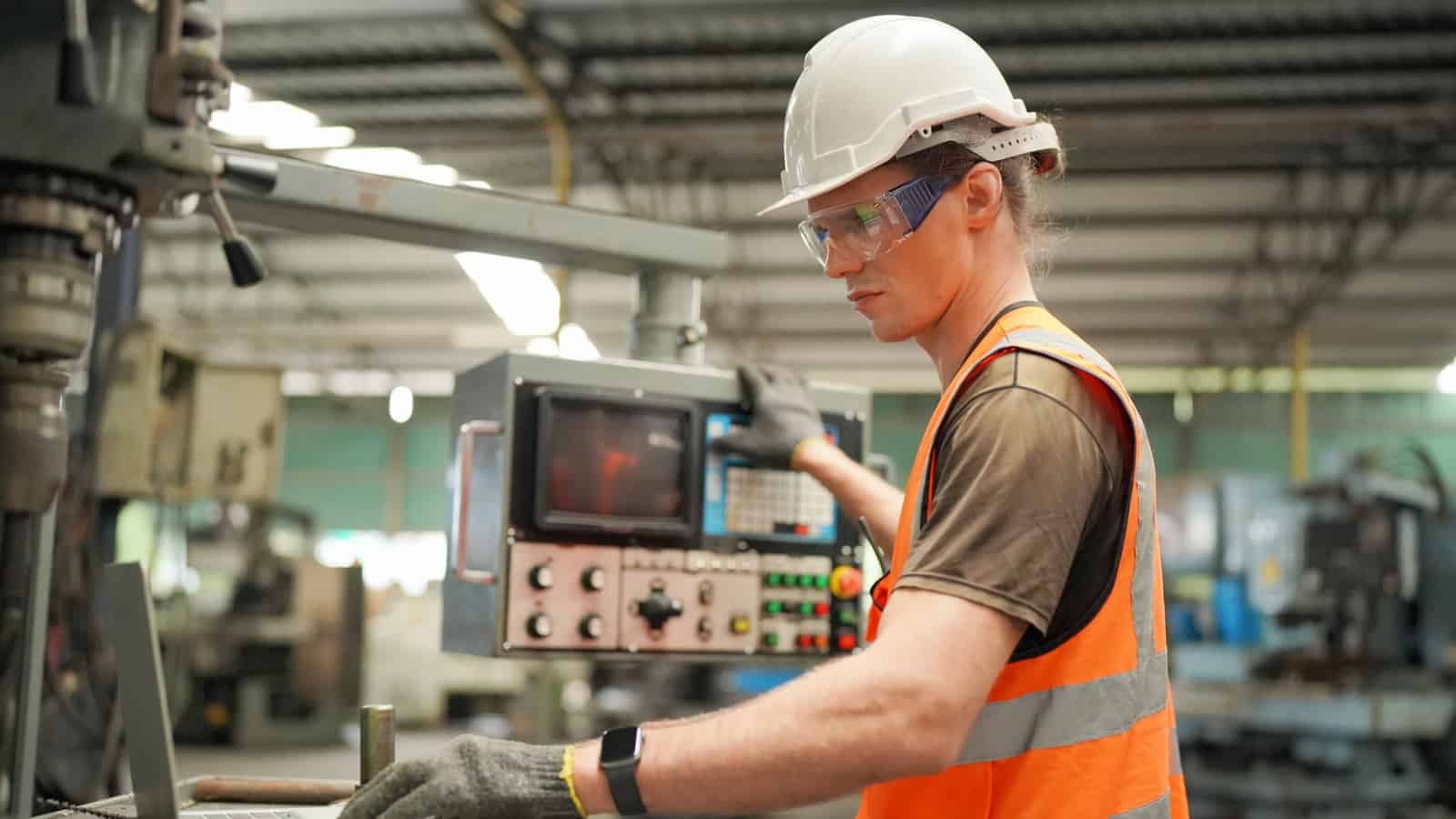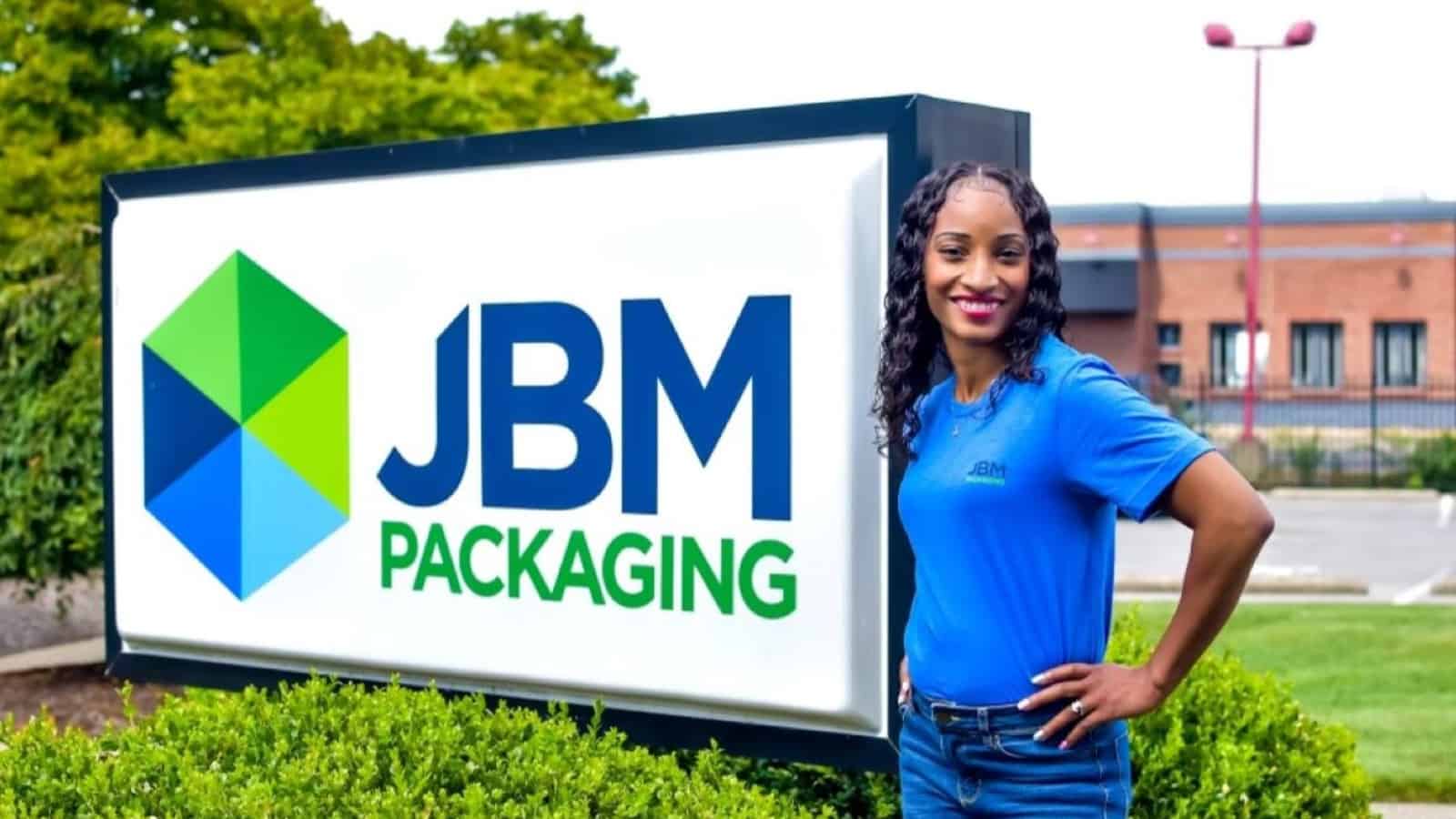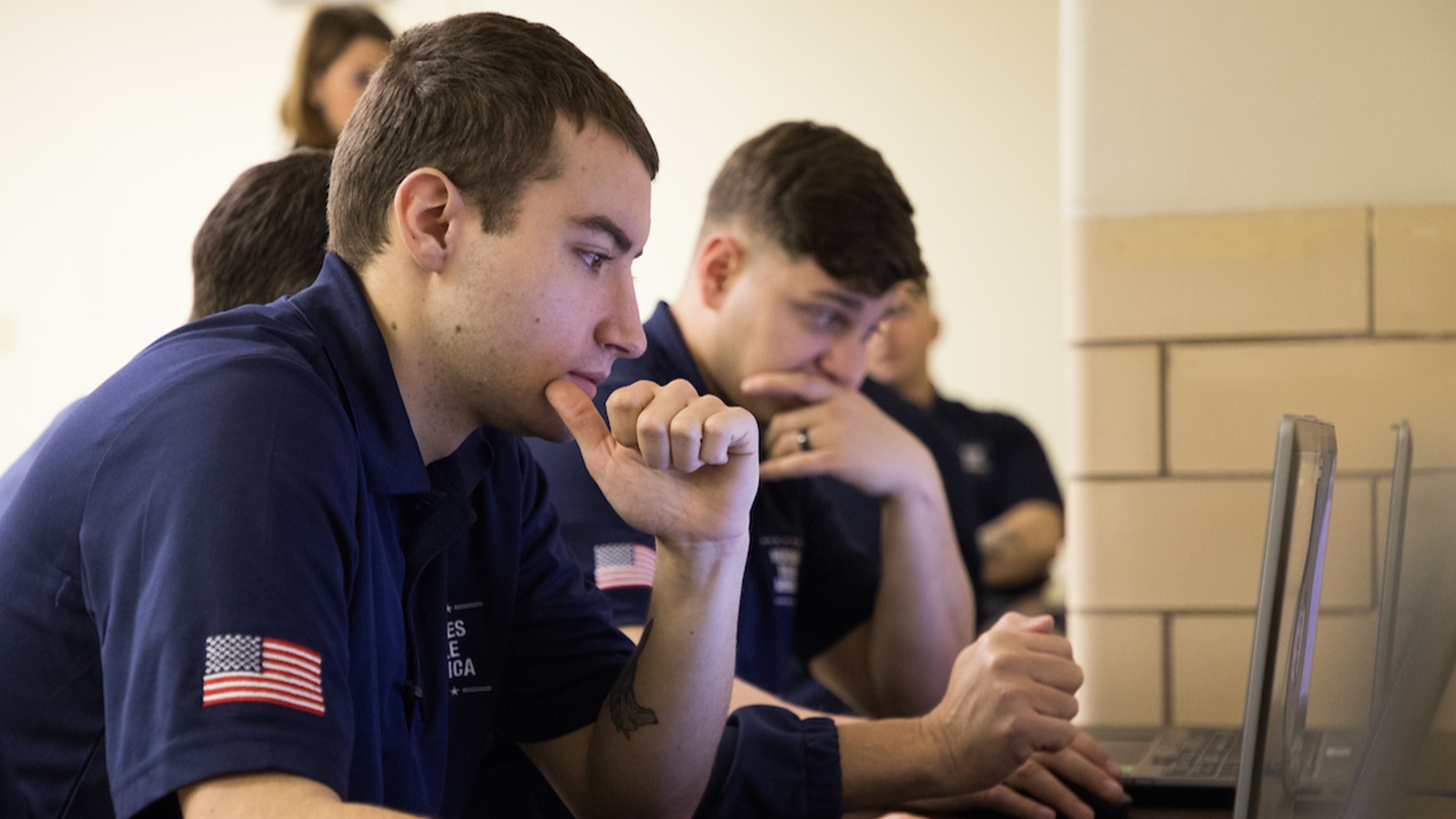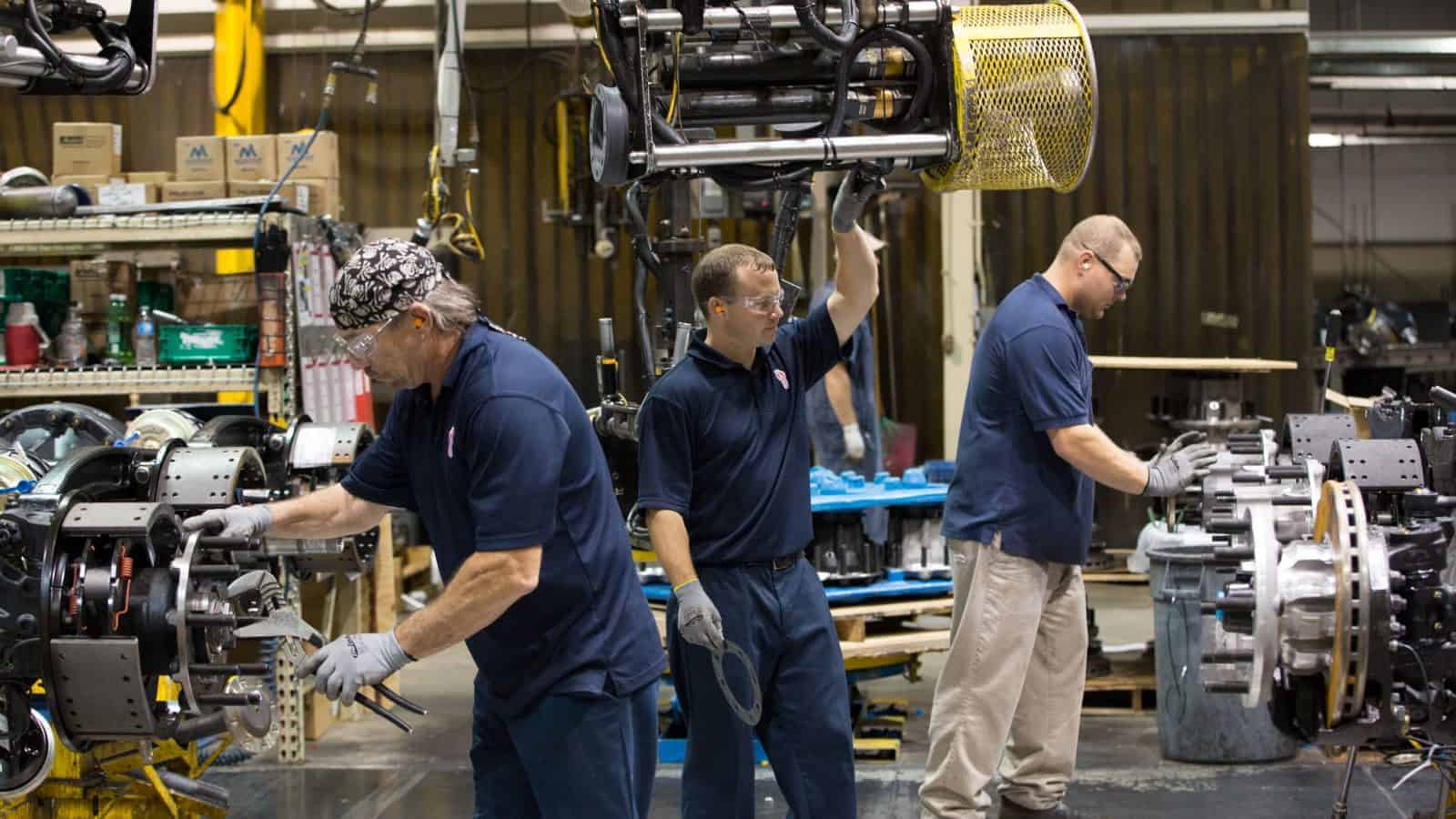House Passage of Tax Priorities a Win for Manufacturers, Counting on Senate to Act Swiftly
Washington, D.C. – Following House passage of the Tax Relief for American Families and Workers Act of 2024, National Association of Manufacturers President and CEO Jay Timmons and Ketchie President and Owner and NAM Small and Medium Manufacturers Group Chair Courtney Silver released the following statement:
“Manufacturers thank Speaker Johnson and Chairman Smith for their leadership in passing the Tax Relief for American Families and Workers Act—and the bipartisan work in the House and Senate to secure progress for America’s manufacturing workers,” said Timmons.
“Manufacturers are now counting on the Senate to act quickly to restore these provisions that are absolutely critical to strengthening America’s competitiveness and growth of manufacturing in America,” Timmons added. “We cannot afford to wait. The cost of delay or inaction will be measured in lost jobs and slower wage growth, along with investment ceded to other countries. Passing this legislation, however, will ensure that small manufacturers, who are the backbone of communities and foundation of America’s supply chain, can continue driving our nation forward.”
“When key tax provisions expired, it wasn’t just businesses like Ketchie that felt the pinch—it was our ability to support and create jobs that took a hit,” said Silver. “I thank Speaker Johnson and Chairman Smith for their efforts to ensure passage of the Tax Relief for American Families and Workers Act. This isn’t just about numbers on financial statements; it’s about taking care of people who make things in America and work at small manufacturing companies across our country.”
-NAM-
The National Association of Manufacturers is the largest manufacturing association in the United States, representing small and large manufacturers in every industrial sector and in all 50 states. Manufacturing employs nearly 13 million men and women, contributes $2.85 trillion to the U.S. economy annually and accounts for 53% of private-sector research and development. The NAM is the powerful voice of the manufacturing community and the leading advocate for a policy agenda that helps manufacturers compete in the global economy and create jobs across the United States. For more information about the NAM or to follow us on Twitter and Facebook, please visit www.nam.org.
NAM to Congress: Pass Crucial Tax Legislation Now

Earlier this month, Congress unveiled the bipartisan Tax Relief for American Families and Workers Act—and now it’s time it passed the legislation, the NAM recently urged congressional leaders.
What’s going on: The bipartisan tax package—a compromise between House Ways and Means Committee Chairman Jason Smith (R-MO) and Senate Finance Committee Chairman Ron Wyden (D-OR)—would restore immediate R&D expensing for businesses, reinstate full expensing (also known as 100% accelerated depreciation) for businesses’ capital investments and return the U.S. to a pro-growth interest deductibility standard.
- Thanks to the NAM’s advocacy, the House Ways and Means Committee supported moving the legislation to the House floor by a bipartisan vote of 40–3.
- A vote on the House floor is expected tomorrow or Thursday, thanks in part to the NAM’s work.
Why it’s important: “All three of these tax policies have a long history of bipartisan support and are critical to strengthening America’s global competitiveness,” the NAM, along with more than 260 other businesses and allied groups, told House Speaker Mike Johnson (R-LA), House Minority Leader Hakeem Jeffries (D-NY), Senate Majority Leader Chuck Schumer (D-NY) and Senate Minority Leader Mitch McConnell (R-KY) earlier this month.
- The policies “have enabled U.S. businesses to innovate, create [well]-paying jobs, protect our national security and remain at the cutting edge of the global economy. Restoring these provisions will have a profound impact on business investment, economic growth and job creation.”
Small businesses: The policies are particularly crucial for small- and medium-sized manufacturers, said Courtney Silver, president and owner of precision machining company Ketchie Inc. group chair of NAM Small and Medium Manufacturers Group.
- The absence of these three tax “provisions directly impacts our ability to invest in new technology, to purchase equipment and to create jobs,” she said.
- “Nearly 90% of manufacturers share similar concerns about their higher tax burden, and if left unaddressed, our companies and our teams will have a harder time securing an edge over our global competitors. … Passing this law would give companies like ours the certainty needed to plan for growth and more investments.”
What you can do: Your members of Congress need to continue to hear why it is imperative they support this tax package. Add your voice at the NAM’s Tax Action Center.
Small Manufacturer: Tax Legislation Restores Commonsense Provisions, Would Provide Big Jolt for Manufacturers of all Sizes
Washington, D.C. – Ketchie President and Owner and National Association of Manufacturers Small and Medium Manufacturers Group Chair Courtney Silver released the following statement calling on Congress to advance key tax priorities included in the Tax Relief for American Families and Workers Act of 2024.
“There is so much at stake for small and medium-sized manufacturers as Congress debates pro-growth tax policy, which is why I strongly support the Tax Relief for American Families and Workers Act,” said Silver. “When Congress allowed immediate R&D expensing, interest deductibility and full expensing to expire, it created a higher tax bill and tremendous uncertainty for businesses like mine. The loss of these provisions directly impacts our ability to invest in new technology, to purchase equipment and to create jobs. Nearly 90% of manufacturers share similar concerns about their higher tax burden, and if left unaddressed, our companies and our teams will have a harder time securing an edge over our global competitors.
“This legislation restores those commonsense provisions, which would be a big jolt for manufacturers of all sizes. Passing this law would give companies like ours the certainty needed to plan for growth and more investments in our future.”
-NAM-
The National Association of Manufacturers is the largest manufacturing association in the United States, representing small and large manufacturers in every industrial sector and in all 50 states. Manufacturing employs nearly 13 million men and women, contributes $2.85 trillion to the U.S. economy annually and accounts for 53% of private-sector research and development. The NAM is the powerful voice of the manufacturing community and the leading advocate for a policy agenda that helps manufacturers compete in the global economy and create jobs across the United States. For more information about the NAM or to follow us on Twitter and Facebook, please visit www.nam.org.
Manufacturing Associations Descend on Capitol Hill to Press for Renewal of Miscellaneous Tariff Bill
Washington, D.C. – Yesterday, the National Association of Manufacturers, American Chemistry Council and CropLife America, along with representatives from 16 manufacturing companies and other business and agriculture groups, joined together to meet with 17 congressional offices, including 15 lawmakers and staff on the House Ways and Means Committee, urging immediate action to renew the Miscellaneous Tariff Bill.
“Manufacturers in the U.S. cannot afford this direct economic hit and need action to be taken as soon as possible. Passing MTB legislation will increase competitiveness, spur growth and support the success of manufacturers, farmers, businesses, workers, consumers and communities throughout the U.S., said the NAM.
“The American Chemistry Council and our members support the renewal of the Miscellaneous Tariff Bill. The MTB would support advanced manufacturing in the United States and domestic chemical production used to make products in key agriculture and food production and industrial sectors, including information technology, renewable energy and automotive goods.”
“The passage of a Miscellaneous Tariff Bill that is fully retroactive would help maintain farmers’ access to the essential pesticide products they need to grow food for the U.S. and the world. A renewed MTB would mean lower input prices resulting in decreased price pressures for U.S. farmers, ranchers and consumers,” said CropLife America.
The previous MTB expired in December 2020, and since then, manufacturers and other businesses continue to pay $1.3 million per day in tariffs—that amounts to $1.5 billion over three years that should and can be invested in job creation and innovation.
-NAM-
The National Association of Manufacturers is the largest manufacturing association in the United States, representing small and large manufacturers in every industrial sector and in all 50 states. Manufacturing employs nearly 13 million men and women, contributes $2.85 trillion to the U.S. economy annually and accounts for 53% of private-sector research and development. The NAM is the powerful voice of the manufacturing community and the leading advocate for a policy agenda that helps manufacturers compete in the global economy and create jobs across the United States. For more information about the NAM or to follow us on Twitter and Facebook, please visit www.nam.org.
-CropLife America-
Established in 1933, CropLife America (www.croplifeamerica.org) represents the developers, manufacturers, formulators, and distributors of plant science solutions for agriculture and pest management in the United States. CropLife America’s member companies produce, sell, and distribute virtually all the necessary and vital pesticide and biotechnology products used by American farmers. CLA can be found on Twitter at @CropLifeAmerica.
-American Chemistry Council-
The American Chemistry Council’s mission is to advocate for the people, policy, and products of chemistry that make the United States the global leader in innovation and manufacturing. To achieve this, we: Champion science-based policy solutions across all levels of government; Drive continuous performance improvement to protect employees and communities through Responsible Care®; Foster the development of sustainability practices throughout ACC member companies; and Communicate authentically with communities about challenges and solutions for a safer, healthier and more sustainable way of life. Our vision is a world made better by chemistry, where people live happier, healthier, and more prosperous lives, safely and sustainably—for generations to come.
Jennifer Abril to Chair NAM’s Council of Manufacturing Associations
Washington, D.C. – The National Association of Manufacturers announced new 2024 leadership for its Council of Manufacturing Associations at the CMA 2024 Winter Leadership Conference. Jennifer Abril, president and CEO of the Society of Chemical Manufacturers & Affiliates, will serve as chair, and Alison Bodor, president and CEO of the American Frozen Food Institute, will serve as vice chair.
“The CMA’s mission is to demonstrate the vital importance of manufacturing to the American economy,” said Abril. “In collaboration with the NAM, the CMA’s member associations will advocate for job creation, investment and innovation in American manufacturing. The strength and weight of the CMA’s voice is unparalleled, and I am honored to serve as the champion for our collective industries’ resilience and growth.”
Made up of more than 200 industry-specific manufacturing associations representing 130,000 companies worldwide, the CMA creates powerful partnerships across the industry, working with the NAM to unite the manufacturing association community, and ultimately the broader business community, around strategies for increased manufacturing job creation, investment and innovation in America.
“Jennifer and Alison have been instrumental to the success of the CMA, particularly in pushing back against an onslaught of unsustainable regulations that would crush President Biden’s goal of growing manufacturing in the United States,” said NAM President and CEO Jay Timmons. “We are confident that they will work in their expanded roles to amplify manufacturers’ voices and further position our industry for global leadership.”
Abril has led SOCMA since 2016. Prior to that, she served as the president of the International Fragrance Association, North America and held leadership positions at the American Chemistry Council. She previously served as CMA vice chair.
Newly appointed 2024 CMA board members include the following:
- Stephen Kaminski, president and CEO, National Propane Gas Association
- Kelly Mariotti, president and CEO, Association of Home Appliance Manufacturers
- Ellen Thorp, executive director, EPDM Roofing Association
-NAM-
The National Association of Manufacturers is the largest manufacturing association in the United States, representing small and large manufacturers in every industrial sector and in all 50 states. Manufacturing employs nearly 13 million men and women, contributes $2.85 trillion to the U.S. economy annually and accounts for 53% of private-sector research and development. The NAM is the powerful voice of the manufacturing community and the leading advocate for a policy agenda that helps manufacturers compete in the global economy and create jobs across the United States. For more information about the NAM or to follow us on Twitter and Facebook, please visit www.nam.org
Policymakers Demand Tax Action

On Thursday, members of Congress took to the House floor to show their strong support for manufacturers’ top tax priorities.
- The NAM is waging an all-out campaign to restore these pro-growth provisions, and key House members added their voices by calling on congressional leadership to schedule a vote as soon as possible.
What’s going on: Yesterday evening, a group of House members lined up for short speeches urging their peers in the chamber to join them in making three immediate tax changes: reinstating immediate R&D expensing; loosening a strict interest limitation; and returning to full expensing (also known as 100% accelerated depreciation) for capital investments.
- Kevin Hern (R-OK) highlighted the harm to America’s competitiveness caused by Congress’ failure to act, asking, “How can we expect to compete with China when it is more expensive to invest, innovate and grow here in the United States of America?”
- Jodey Arrington (R-TX) echoed that message, saying Congress can “supercharge America’s competitiveness” by giving businesses the certainty to plan job-creating investments.
Why it’s important: Without the restoration of immediate R&D expensing, a pro-growth interest deductibility standard and full expensing for capital investments, manufacturing jobs, R&D and competitiveness will all be in jeopardy.
- In the NAM’s Q4 2023 Manufacturers’ Outlook Survey, 89% of respondents said higher tax burdens on manufacturing activities would make it more difficult to expand their workforces, invest in new equipment or expand their facilities.
Take action: Manufacturers’ voices are crucial during the ongoing negotiations. Visit our Tax Action Center to send your own message about these tax priorities directly to Congress.
How Mentorships Help Women Advance in Manufacturing

Jacqueline Cooley spends her days coaching manufacturing employees and helping them build better lives. So when she was looking to improve her professional skills and career trajectory, she knew it would be valuable to find her own coach or mentor.
Cooley found a great match through the Women MAKE Mentorship Program, a free initiative run by the Manufacturing Institute (the NAM’s workforce development and education affiliate), which aims to strengthen women’s careers in the industry by connecting them with peer advisers.
She recently told us about her experience with the program and what it has meant for her career so far.
A better life: Cooley is a better life coach at JBM Packaging, an “eco-friendly, flexible packaging” manufacturer in Lebanon, Ohio, which prioritizes hiring and supporting those who have been involved with the justice system. These “fair chance” hires make up about half the company’s approximately 160-person workforce.
- “I haven’t really found anybody else who does what we do,” said Cooley, whose job entails management of the fair chance program and its participants. “We have life coaching, financial coaching, our Wheels [car leasing] program. We do parental coaching; there are loans [employees] can take out. It’s holistic.”
A coach finds a coach: “I saw [the mentorship program] on the MI’s website and was immediately interested because I’d been looking for a mentor,” Cooley told us.
- “It has been really good. My mentor and I both work in human resources. She’s someone I can bounce ideas off.”
- “I’m at a point in my career where I wanted somebody else’s guidance, wanted to get [the benefit of] their experience in the HR world and learn the steps they took to get to the next level,” she added.
How it works: The MI pairs its mentors—all of whom are volunteers—with mentees based on personal and professional goals and interests, communication style and a dozen other criteria provided through a self-assessment.
- Cooley’s mentor—who works in human resources for another manufacturer—has already helped Cooley fulfill one of her primary goals: to broaden her network in the industry and meet more people.
- “My mentor has been in HR for 20 years or so, and she has a lot of contacts in the [Cincinnati] area and is well-connected,” said Cooley. “She’s invited me to her [workplace], had me talk to other people there, invited me to other [events]. I’ve met a lot of people through her.”
What’s next: Cooley, who said she is considering becoming a mentor herself once she finishes the nine-month program, said more women in manufacturing should participate.
- “It’s a great way to make connections with other women,” she said. “Don’t sell yourself short by thinking you don’t have anything to offer. The mentor can learn from the mentee as well as vice versa. It will open up opportunities for you.”
Dive deeper: To learn more about the MI’s free Women MAKE Mentorship Program, click here or contact the team at [email protected].
NAM Statement on Southern Border Closures
Washington, D.C. – National Association of Manufacturers President and CEO Jay Timmons released the following statement on U.S. Customs and Border Protection’s closure of two critical rail ports in Texas:
“Each day that rail operations at Eagle Pass and El Paso are suspended, more American jobs are put at risk. Snarling supply chains in this way could throw manufacturing production into disarray. Mexico is the United States’ largest trading partner, which means this shutdown threatens to inject serious uncertainty into the economy heading into the New Year.
“Manufacturers support CBP in their mission to protect national security, but stifling trade between the U.S. and Mexico is a direct threat to our economic competitiveness. It is not the solution to immigration challenges, but it does wrongly punish those who are not at fault. The NAM will continue working with the White House, CBP and leaders in the House and Senate to swiftly reopen the rail ports. This is yet another painful consequence of our broken immigration system, and our leaders need to recognize the urgency of fixing that system. Manufacturers are focused on solutions that uphold our laws and strengthen our economy.”
-NAM-
The National Association of Manufacturers is the largest manufacturing association in the United States, representing small and large manufacturers in every industrial sector and in all 50 states. Manufacturing employs nearly 13 million men and women, contributes $2.91 trillion to the U.S. economy annually and accounts for 53% of private-sector research and development. The NAM is the powerful voice of the manufacturing community and the leading advocate for a policy agenda that helps manufacturers compete in the global economy and create jobs across the United States. For more information about the NAM or to follow us on Twitter and Facebook, please visit www.nam.org.
Wisconsin Aluminum Foundry Shifts Gears on Retention

Wisconsin Aluminum Foundry CEO Sachin Shivaram knew something had to change. It was 2021, and at one point that year, the turnover rate of new hires for his foundry’s finishing department reached 100%, hurting its on-time delivery rate to customers.
He was facing a business challenge that many manufacturers consistently cite as their number-one issue: workforce retention, along with recruitment.
Finding a solution: Tackling the issue required looking at all facets of WAF’s operations, including onboarding and training of new hires.
- “What we found was we weren’t giving employees the proper environment to train on a new job,” said Shivaram. “We were putting them on the shop floor and telling them to learn while you work.”
- This finding was underscored by a conversation Shivaram had with one of his employees, who had been with WAF for 25 years.
- “He said when he first joined, he had no idea what he was doing in the first six months,” said Shivaram. “He would clock in and just watched what other people were doing and tried to get by and be productive. He didn’t speak the language and just stuck it out. And I thought to myself, with that sort of confusion among new employees, they will just stop coming.”
Fast Forward grant: Recognizing that WAF needed to train new hires without burdening experienced employees or slowing down its operations, the company applied for a Fast Forward grant through the Wisconsin Department of Workforce Development in October 2021.
- Thanks in large part to the $194,000 it received, WAF created a training center where entry-level employees can learn foundry basics, gain finishing and production skills, improve their understanding of customer specifications and acclimate to the physical demands of the job.
- For employees whose first language is not English, the center provides full-time translators who speak Spanish or Hmong. The foundry also pays for English classes if employees want to take them.
The result? To date, WAF’s new hire turnover rate has dropped from 100% to 15%—an astonishing improvement.
Other benefits: For Shivaram, meeting the company’s retention challenge also means supporting employees “through their career cycle.”
WAF’s starting wage is roughly $25 an hour, plus a $1.25 shift premium. The foundry offers incentive plans, which give employees the opportunity to earn up to 5% additional pay. In addition, WAF pays $400 a month to anyone with young children to offset their expenses for child care—not just for formal day care but any child care expense.
- “We have about 100 parents on that program, and that is huge,” said Shivaram. “People consistently mention to me that is a reason why they stay with us.”
Education: Shivaram notes that for anyone who wants to go back to school, even if it’s not exactly related to their career path, WAF supports that and will pay for part of it.
Feedback: While WAF performs annual employee surveys across all departments to garner feedback, as well as formal check-ins, Shivaram says that informal engagement—whether it’s participating in a company-wide event, such as a golf outing or pizza party, having lunch with an employee or just catching up with someone while walking through the plant—is really what gives him a pulse on the foundry.
- “Informal engagement helps people feel valued because they feel like they have a connection with someone—a friendship even. That is hugely powerful,” he noted.
The last word: The Wisconsin Department of Workforce Development recently recognized WAF for its workforce retention efforts—particularly its retention of minorities and women, who had been underrepresented at the foundry.
- That’s no longer the case, Shivaram pointed out proudly—minorities now make up about 10% of WAF’s workforce, and the foundry now has 40 women on the shop floor.
- “Improved employee retention has had a direct impact on the success of our business and our customers. It’s nice to have someone validate that we’re on the right path,” he concluded.
A New Project Translates Military Experience for Manufacturing Employers

Manufacturers have long sourced great talent from the military community, helping transitioning and former military members apply their skills to America’s most pressing manufacturing challenges.
Through the Manufacturing Readiness Project, the Manufacturing Institute is now making it even easier for military veterans to find excellent civilian careers—and for manufacturers to build an outstanding and talented workforce.
The project: The Manufacturing Readiness Project aims to make military experience comprehensible to civilian employers via a digital credentialing system.
- Military servicemembers are awarded digital badges—stored in digital wallets—based on their military occupation and the training they received, giving both them and future employers a clear way to understand how their military experience prepared them for a career in manufacturing.
The details: The badges include a range of certifications in areas like general safety, general quality and general maintenance.
- Each badge includes a number of additional micro-badges signifying levels and types of achievement. General safety, for example, includes micro-badges in fields like workplace safety, environmental inspections and emergency response.
- These badges are also aligned with more than 300 military occupation codes across all five branches of the military, thereby translating military experience into terms that civilian employers will recognize.
What it means: For the MI, the workforce development and education affiliate of the NAM, this project represents a critical opportunity to expand the military-to-manufacturing pipeline.
- Currently, the MI’s Heroes MAKE America program trains transitioning military personnel in manufacturing skills and works to connect veterans to opportunities in manufacturing.
- The Manufacturing Readiness Project will enhance this effort by providing an avenue for veterans and transitioning personnel to highlight their military experience and enter the MI’s military-to-manufacturing pathway.
Why it matters: This initiative is one of the first of its kind to combine the use of the newest labor market technology tools—Learning & Employment Records, digital badges and digital wallets—to help workers find employment.
- This project is designed to be scalable across military occupations and civilian industries, thus opening the door to a broader range of servicemembers, veterans and employers.
What to expect: The pilot launched on Nov. 13—and within the first few weeks, more than 400 total badges have been awarded to transitioning and former servicemembers.
- So far, the initiative has received vital support from a range of organizations, including Solutions for Information Design, Jobs for the Future, Hire Heroes USA, the Manufacturing Skill Standards Council and Walmart. Following the pilot, the MI looks forward to seeking even more partners across the industry.
Learn more: For more information about the Manufacturing Readiness Project and the MI’s Heroes MAKE America program, please contact [email protected].
